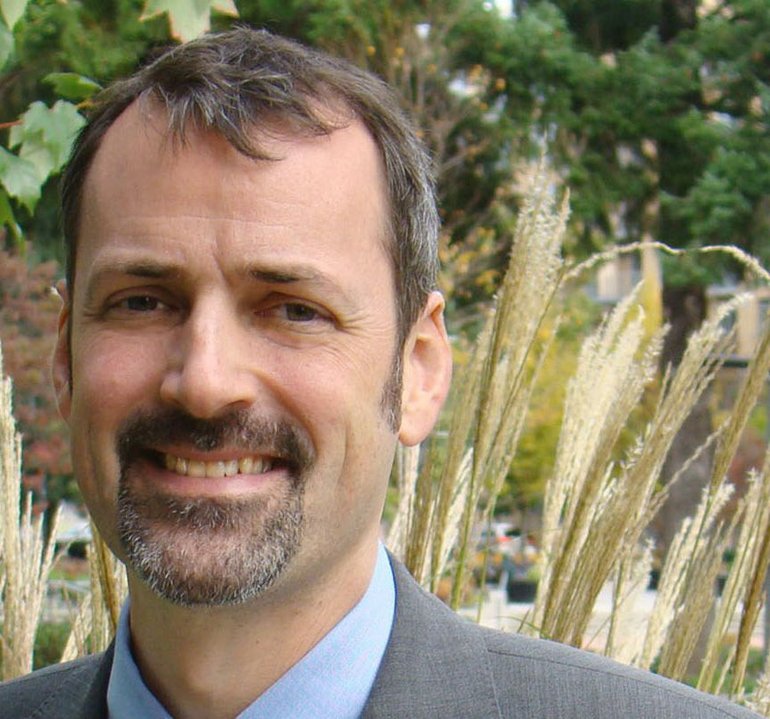Clark County’s top public officials run enterprises worth more than a billion dollars. They supervise work forces of 1,000 people or more. What they do touches the lives of people in Clark County every day.
Make no mistake — it’s not charity work. The top-paid public administrators in the county all clear salaries of $160,000 or more. But they would likely make a lot more money doing their jobs in the private sector.
Several of them have. Port of Vancouver Executive Director Larry Paulson took a $16,000 pay cut when he left his private law practice to take his job at the port. Vancouver City Manager Eric Holmes said he made more than his current salary of $161,499 when he served as the chief operating officer of consulting firm MacKay & Sposito in 2006 and 2007.
“If I were in the analogous position in the private sector, would I make a lot more? Yeah,” Holmes said. “But I realized that the profit motive didn’t motivate me.”
A direct line of comparison can’t be made between top jobs in the public sector with the private sector, because the exact jobs don’t exist.
But, according to global headhunting firm Robert Half International, a chief financial officer at a Portland-area firm handling more than $500 million a year (equivalent to the budgets of large public agencies like the city, county and largest school districts) should earn $271,250 to $395,000 annually. That doesn’t count stock options or bonuses.
There’s an upper limit to what public employees can make, said Scott Bailey, regional economist with the Washington Employment Security Department.
“A senior manager at Boeing is going to be making a lot more than just about any senior manager in the public sector,” Bailey said. “The exception might be the football coaches at the University of Washington.”
Smaller pay gap
That lower ceiling for public executives contributes to a much smaller pay gap between the most and least compensated workers in the public sector.
In 2009, adjusted for hours worked, Clark County public employees (excluding schools) who earned in the top 10 percent bracket made 4.24 times more than those in the lowest 10 percent. Include schools, which have more low-wage staff such as janitors and cafeteria staff, the gap grows to 6.25.
In the private sector, the highest paid 10 percent make an average of 8.75 times more than the lowest 10 percent.
Higher starting wages of the lowest 10 percent of public workers are also a factor in wage gaps.
Some argue that government workers are overpaid relative to their skills, but Bailey said that many of the lowest-paying jobs in the private sector — fast food and retail for example — don’t exist in government. Thus, the lower-paying government jobs tend to pay more than in the private sector.
Government also has more positions that require college degrees, and therefore pay more, Bailey said.
“The other perspective is that the bottom 10 percent in the private sector are paid too low,” Bailey said.
Clark County Administrator Bill Barron said the county routinely does wage comparisons to make sure that employees are making salaries similar to other agencies.
“From one perspective, the taxpayer says we should get the best possible people in the world to do the job,” Barron said. “And there’s also a bias that (government workers) shouldn’t make more money than (them).”
Trading sectors
Of course, not every public administrator stays in that sector forever.
Most recently, former Vancouver City Manager Pat McDonnell left his $171,650 a year job to become senior director of site services with Vancouver semiconductor company SEH America. His salary is unavailable and he did not respond to a request for an interview.
John White left his job as Clark County’s planning director and in 1976 founded The J.D. White Co., a successful land-use and planning consulting firm that was sold for an undisclosed amount to Berger/ABAM.
Paulson, a former private practice attorney who became the executive director of Port of Vancouver, said there are advantages to leaving public service.
He pointed out that along with lower pay, all of his decisions are made in a fishbowl, unlike many CEOs. His salary is also public information: Paulson earns $165,000 a year, plus $23,500 in deferred compensation and a $6,000 car allowance.
But Paulson, who will retire next spring, said his reasons for doing what he does go beyond a paycheck.
“It’s been my personal experience that the public CEOs in this community are really dedicated to this community,” Paulson said. “They really do mean to do the right thing, even if we often disagree about what the right thing could be.”
Barron, the Clark County administrator, questioned drawing comparisons between his pay and private executives, since the jobs are very different. But he did say he thought he could probably make more than his 2010 gross pay of $192,900 at a private company.
“I didn’t get into the public sector for the money, I got into it to help people,” he said. “I’m very pleased with what I make. I’m very proud, but I’m paid very fairly, in my opinion.”
Holmes joked that his wife has told him that if he leaves his job as Vancouver’s city manager, he should go into the higher-paid health care or education fields. But he said that the complex problems offered by government work offer the kind of challenge that he craves. He said his job supplies “never-ending story problems.”
He’s also drawn to doing a job that affects every single resident of the city every day.
“I actually believe in the difference that you can make in your community by marshaling the resources of the collective to put toward the public good,” Holmes said. “We’re not a business. There are things we can learn from the way business operates. But what we do are things that can’t, shouldn’t or won’t be done by business.”



